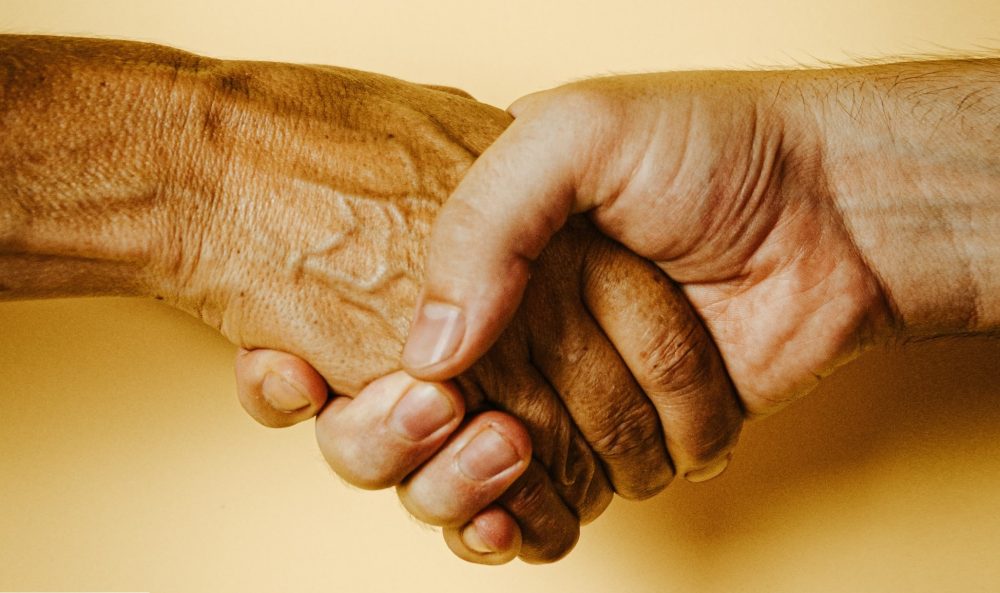
The frequent conversations I have with the frail elderly person who is losing their independence and need others to look after them, usually go something like this; I don’t want to go into hospital, but I will when it is absolutely necessary, and I have to go.
What is important is for those coming towards the end of their life to realise that there is no must about it. They always have a choice; it is their right to choose if they want to go into hospital or would prefer to remain at home.
For the record, plenty of elderly patients have excellent lifesaving care, are well looked after, and speak highly of the exemplary care and attention they had in hospital.
Many frail, elderly and housebound people have a massive fear of hospitals. They may have heard other people’s horrendous experiences or witnessed it themselves. Are you aware of what they have experienced in hospital? Do you know whether they have had a bad experience that might be causing them anxiety at the thought of having to be admitted?
For the record, plenty of elderly patients have excellent lifesaving care, are well looked after, and speak highly of the exemplary care and attention they had in hospital.
However, hospital isn’t always the best place for them. Let me explain why I believe this to be true.
- If the patient needs to be admitted by ambulance, they may have a long wait for the ambulance to arrive.
- When they get to A&E they are almost guaranteed to have to wait again.
- Waiting to be seen by the nurse and doctor and healthcare assistant will add additional hours to their waiting time.
- Should they need a blood test, or an x-ray or scan, that’s more waiting.
- Then they wait for the assessment.
- Then the results – more waiting.
The elderly person can be getting the very best care the health professionals can provide, but it can still be terrifying and bewildering experience for them, as they may not understand what is being explained, or even why they’re there. They are also in an unfamiliar environment where the routine is completely different to what they are used to. They may not be able to get any rest, due to the noise on the ward, or nurses coming in to do their checks. And the food may not take their fancy.
I have seen fear, alarm and abject horror come across peoples’ faces when I mention hospital. I have also come across some very brave souls who expressed their wishes to take their chances and remain at home.
The ones I am most impressed by are those who accept what will happen, will happen. They decide to remain in their own homes and have a dignified death in the place of their choosing with those most dear to them present.
It’s very important that elderly people understand that have a choice about going into hospital, that it’s their life and their body. Some of the ageing population find the whole hospital experience traumatising and do not want to continue being admitted and discharged.
While the individual has full mental capacity and is of sound mind, please let us all find the courage to have these difficult conversations. We need to discuss their wishes before they become unconscious and unable to make any decisions when it is too late. While we have time, their wishes can be documented on an Advanced care plan, or RESPECT form (Recommended Summary Plan for Emergency Care and Treatment). This form is what it states, to give some guidance and direction to healthcare professionals in the event of an emergency. When the person becomes critically ill and unable to make a decision, the respect form is a guide to what the individual’s wishes are. The RESPECT form is not legally binding and the individual has the right to change their minds at any stage.1
When The Patient Is Your Elderly Parent
This whole situation has additional emotional charge when the elderly patient has an adult child who is a doctor. The conversations that we encourage our patients to have with their elderly parents are somehow more difficult to have when it’s our parents we need to be talking to.
It’s incredibly important that we can start talking to our parents about what their feelings and thoughts are about their preferred place of care or dying?
We’ve all seen and heard what people say about their elderly relatives when they come out of hospital for the umpteenth time.
“The hospital did nothing for them.”
“They are worse than before they went in.”
“Now look they cannot walk like before.”
These are the comments we hear from families on a regular basis because they don’t understand that what’s really going on is simply the natural ageing process. As we reach the end of our lives, our bodies slowly stop working and no matter how wonderful it might be, modern medicine cannot stop nature. We must be honest enough with ourselves when it’s our parents who are reaching the end of their lives and becoming frail. Are we sending them into hospital to avoid the inevitable and end up prolonging the suffering?
We all want the best for our parents, and we believe that we are encouraging them into hospital to help them. As a society we believe that hospitals are the right place for sick people. However, we are doctors, we know that there comes a time when the human body reaches a stage where modern medicine can no longer help. Antibiotics no longer work, as the body’s immune system is just too weak and unable to respond.
I have seen fear, alarm and abject horror come across peoples’ faces when I mention hospital. I have also come across some very brave souls who expressed their wishes to take their chances and remain at home.
Modern medicine can help with pain, distress, anxiety, breathing problems towards the end of life, and these can be administered within the relative comfort of the patient’s own home.
Hospital may be the right place for those who choose to spend the end of their life there, but that is what it should be, a choice. What’s more, it’s the patient’s own choice.
Having conversations around end-of-life care is difficult with our patients, with our own parents it can be even harder. May I strongly advise that you have these conversations now, before it’s too late? Find out what your parents want to happen while you still can and get it down in writing so that when the time comes, you and your elderly parent both understand what those choices are.
Reference
- Resuscitation Council UK, https://www.resus.org.uk/respect/respect-healthcare-professionals [accessed 3/2/24]
- ResusCouncilUK Youtube channel, Dr Zoë Fritz, Consultant Physician at Cambridge University Hospitals NHS Foundation Trust, talks at ReSPECT conference 2018 about ‘Why ReSPECT?’ https://www.youtube.com/watch?v=jiqzGKn5pnk [accessed 3/2/24]
Deputy Editor’s note: readers may also be interested in these related articles:
- https://bjgplife.com/first-aid-or-last-aid-during-the-covid-19-pandemic-helping-carers-with-deciding-right/
- https://bjgplife.com/choose-well-is-not-good-advice-to-people-in-need-of-nhs-care/
- https://bjgplife.com/we-need-far-end-practices-to-meet-the-demands-of-elderly-care/
Featured photo by Ave Calvar on Unsplash








